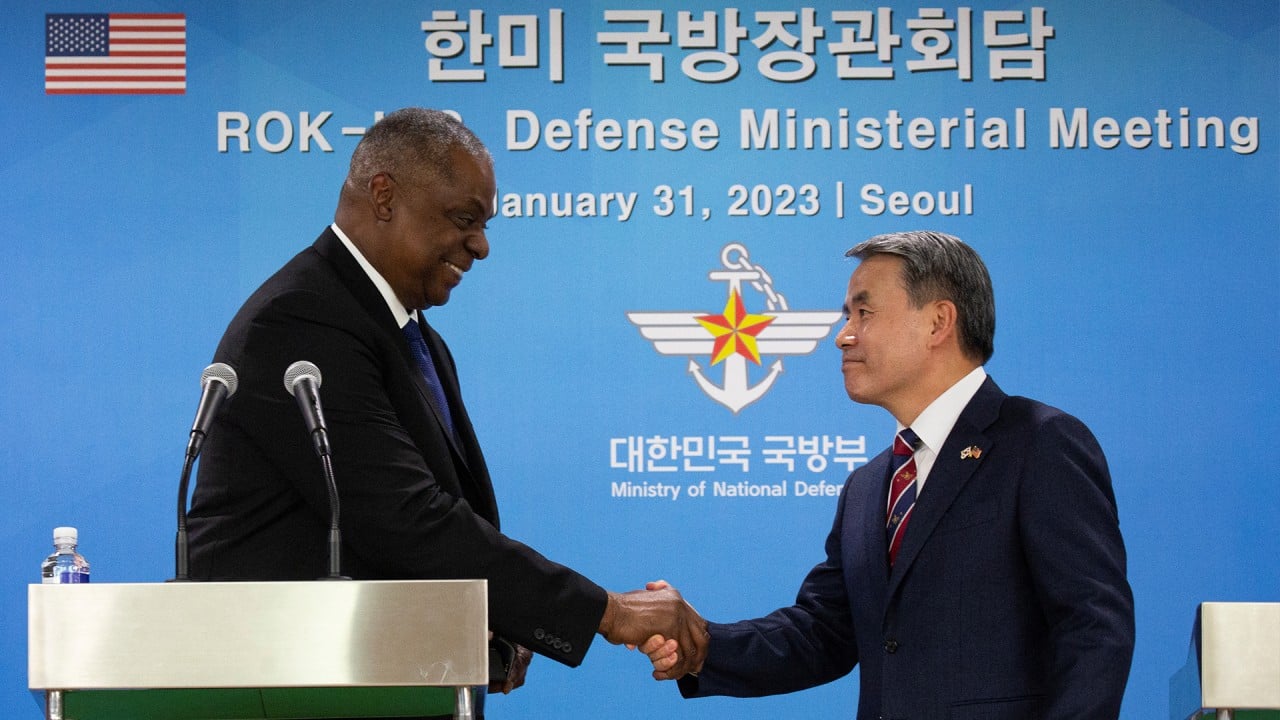China Urges Philippines To Remove Missiles From South China Sea

Table of Contents
China's Assertions and Accusations
China's claims in the South China Sea, particularly concerning the Spratly Islands, are well-documented. This latest demand stems from Beijing's assertion of its inherent territorial sovereignty over vast swathes of the sea, a claim that directly contradicts the Philippines' own claims and the findings of international arbitration.
- Official Statement: China's official statements have condemned the alleged missile deployment as a provocative act, threatening regional peace and stability. They have called the action a violation of their historical rights and claim that these missiles directly undermine China's security interests.
- Sovereignty Violation: China views the Philippines' presence and any military installations, including missiles, as an illegal occupation of its sovereign territory. They frame the situation not as a territorial dispute, but as an act of aggression against Chinese sovereignty in the South China Sea.
- Military Implications: China emphasizes the potential military implications of the missiles, suggesting they could be used to target Chinese assets and disrupt regional stability. This perceived threat underscores the urgency of their demand for removal.
- Specific Islands: While not always explicitly stated, China's concerns are frequently linked to specific islands and features within the Spratly archipelago that are claimed by both countries, further fueling the tensions in this strategically vital area.
The Philippines' Response and Stance
The Philippines has consistently rejected China's expansive claims in the South China Sea. Its response to China's demand has been firm, highlighting its commitment to defending its sovereign rights and interests within the region.
- Official Response: The Philippine government has categorically denied deploying offensive missiles, emphasizing that its military presence is purely defensive and intended to protect its fishermen and its own territory.
- Self-Defense Justification: The Philippines argues its actions are justified under the principle of self-defense, citing China's increasingly assertive actions in the region as a direct threat to its national security. The deployment of defensive capabilities is seen as a necessary measure to protect its own interests.
- International Law and UNCLOS: The Philippines relies heavily on international law, particularly the UN Convention on the Law of the Sea (UNCLOS), to support its claims. It cites the 2016 arbitral ruling that invalidated China's expansive nine-dash line claim as a cornerstone of its legal argument.
- International Alliances: The Philippines seeks support from its allies, notably the United States, to counter China's assertive behavior and to deter further aggression in the South China Sea. This international dimension adds complexity to the already tense situation.
International Implications and Geopolitical Ramifications
The escalating tension between China and the Philippines has significant implications for regional security and the broader geopolitical landscape.
- Regional Security: The potential for military escalation is a major concern. The presence of missiles, even defensive ones, raises the risk of accidental conflict or miscalculation. This volatile situation threatens the delicate balance of power in the region and could destabilize Southeast Asia.
- US Involvement: The United States, a key regional ally of the Philippines, plays a significant role. US support for the Philippines strengthens its position against China, while also adding to the complexity and potential for superpower confrontation.
- ASEAN's Role: The Association of Southeast Asian Nations (ASEAN) faces a difficult challenge in navigating this dispute. Maintaining regional peace and stability is paramount, yet ASEAN's approach must balance the competing interests of its member states, including China and the Philippines.
- Diplomatic Solutions: While the potential for escalation is high, diplomatic solutions remain crucial. International pressure and continued dialogue are vital to de-escalate the situation and find a peaceful resolution that respects international law.
The Role of International Law and Arbitration
The 2016 arbitral ruling by the Permanent Court of Arbitration (PCA) under UNCLOS is central to understanding the legal dimensions of this conflict.
- 2016 Arbitral Award: This ruling largely invalidated China's expansive nine-dash line claim, bolstering the Philippines' case. The ruling, however, has been largely ignored by China.
- China's Rejection: China's outright rejection of the PCA ruling undermines the international rule of law and weakens the effectiveness of international arbitration in resolving territorial disputes. This rejection has significant implications for the global legal order.
- Future Legal Challenges: The lack of adherence to the PCA ruling suggests that legal avenues for resolving this conflict may be limited. While further legal challenges could be pursued, their success is uncertain.
Conclusion
The escalating tension between China and the Philippines over the deployment of missiles in the South China Sea is a critical issue with significant regional and global ramifications. China's demand for the removal of these missiles highlights the deep-seated territorial disputes and the broader power dynamics at play. The Philippines' response, emphasizing self-defense and international law, underscores the complexity of the situation. The involvement of the US and the role of ASEAN add layers of complexity to this already precarious situation. The lack of adherence to international legal rulings further compounds the challenges in finding a peaceful resolution. The South China Sea dispute, and specifically this missile deployment issue, remains a significant threat to regional stability and demands continued attention. Stay informed about developments in this critical region and understand the complexities of the territorial disputes in the South China Sea to better comprehend the potential for further escalation. Continue to follow news and analysis regarding the ongoing diplomatic efforts to resolve this conflict peacefully and prevent further escalation of the South China Sea crisis.

Featured Posts
-
 Jasmine Paolinis Historic Rome Triumph A New Era Begins
May 20, 2025
Jasmine Paolinis Historic Rome Triumph A New Era Begins
May 20, 2025 -
 Verify Your Child Benefit Crucial Information From Hmrc
May 20, 2025
Verify Your Child Benefit Crucial Information From Hmrc
May 20, 2025 -
 Ajatha Krysty Fy Esr Aldhkae Alastnaey Imkanyat Jdydt Libdaeatha
May 20, 2025
Ajatha Krysty Fy Esr Aldhkae Alastnaey Imkanyat Jdydt Libdaeatha
May 20, 2025 -
 D Wave Quantum Qbts Stock Performance Thursday Factors Contributing To The Fall
May 20, 2025
D Wave Quantum Qbts Stock Performance Thursday Factors Contributing To The Fall
May 20, 2025 -
 Pro D2 Huit Equipes En 8 Points Analyse Du Calendrier Et Des Chances De Maintien
May 20, 2025
Pro D2 Huit Equipes En 8 Points Analyse Du Calendrier Et Des Chances De Maintien
May 20, 2025
